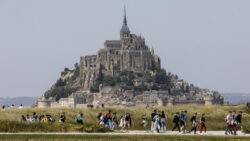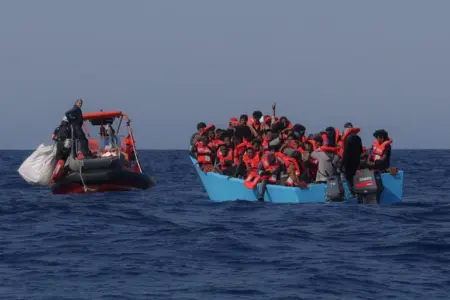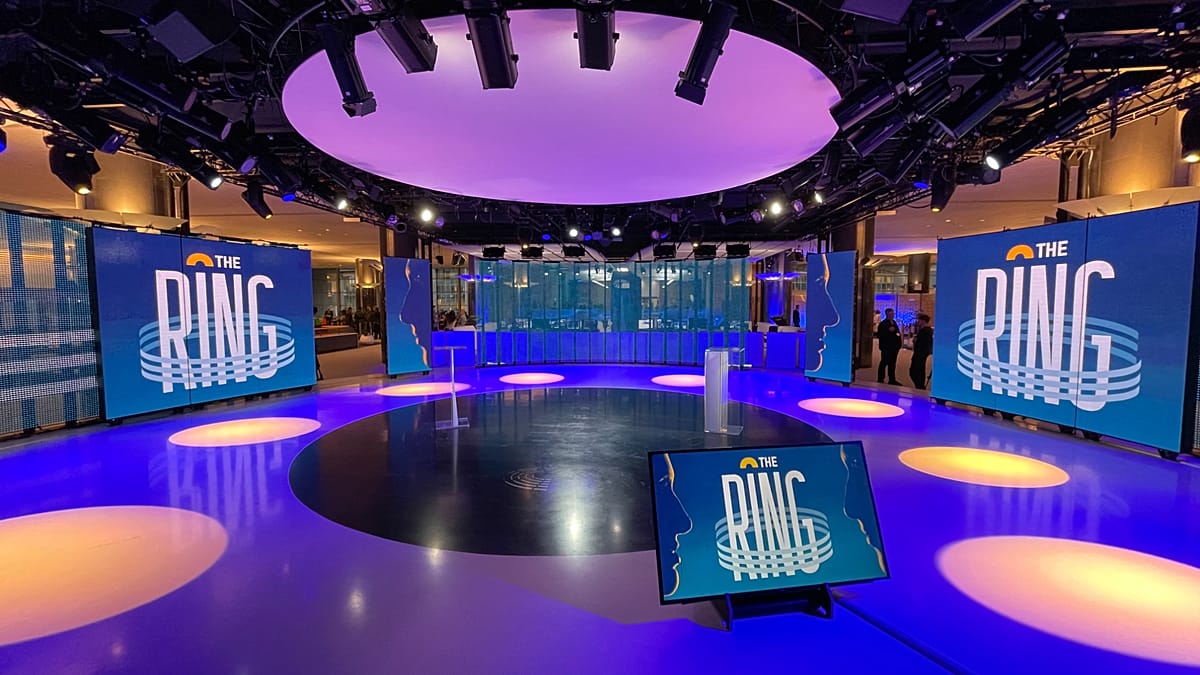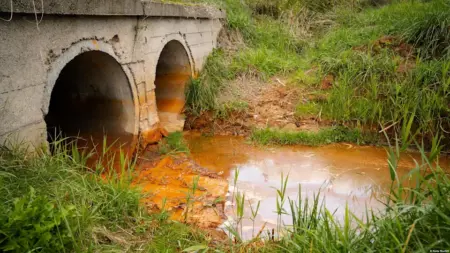Just before lunch at the height of the summer season, the narrow alleys of France’s iconic Mont-Saint-Michel are thronged with a crush of people.
But come late afternoon, the same steeply ascending lanes are almost deserted.
This is the dilemma for the famed abbey monastery on an islet off the Normandy coast that is France‘s most visited tourist destination outside of Paris and a UNESCO World Heritage site since 1979.
Can measures that it is implementing, such as cheaper or even free parking in the evenings, help it better regulate the influx of tourists?
Mont-Saint-Michel by drone
It’s a dilemma shared by dozens of other sites popular with tourists in France and elsewhere in Europe, which during the summer are filled to bursting with visitors, but empty out in the evenings and during the off season, often to the detriment of the local economy.
The Mont’s reputation as a tourist magnet puts off some visitors, as it celebrates the 1,000th anniversary of the foundation of the abbey on the site.
It welcomes three million visitors every year, including a million in the summer.
On August 18, 2022, the Mont, which has a total area of less than four square kilometres (1.5 square miles), saw a peak in attendance for the season with more than 36,000 visitors in one day, the equivalent of an entire small French city descending on the site.
However, most of these tourists organise their visit in the same way: they arrive before lunch, have a picnic or go to restaurant, visit the site and then return home or to their accommodation in the middle of the afternoon.
This pattern leads to an overcrowding of the site from 10:00 am to 4:00 pm, keeping some potential visitors away.
They are barely aware that the site, which has only 132 hotel rooms within the walls, is almost empty in the evening.
‘Incentive measures’
To try to remedy this, the foundation responsible for the upkeep of the Mont-Saint-Michel is implementing several “incentive measures” from this summer, some of which will come into force next month.
“The first measure is communication, encouraging visitors on social networks, in the press, to come before 10:00 am in the morning and after 4:00 pm,” said Thomas Velter, director of the foundation.
Regulating the frequency of shuttle buses to the site can also help a well as other incentive measures such as free parking from 6:30 pm except in July and August.
Monk to mayor
FRANCE IN FOCUS (C) FRANCE 24
“We rather encourage people coming out of season,” he added.
He said some 30 percent of tourists come in the peak summer months alone, with only 4.5 percent of all the days of the year seeing peak crowds.
“The rest of the time Mont-Saint-Michel is a place of calm and contemplation.”
Visitors have for some years already been required to take a shuttle bus or walk to the site after parking their cars in the mainland, rather than park outside as was the case in the past.
Between 2005-2015, around 230 million euros was spent on returning the site to the sea, including flushing out excessive sand and silt and replacing the road with a wooden footbridge.
‘Stay until the evening’
Emmanuel Conan, who manages the Les Mouettes gift shop said: “If people arrive earlier, they will be the first to go up to the abbey, without the crowds”.
Tourists who are following this advice agree it’s the way to go.
“We wanted to stay until the evening and to take some photos when the sun goes down. And we hoped that the most people left the area already in the evening, so we came late today,” said Matthias, 56, a tourist from Dortmund in Germany.
France in June unveiled a plan to regulate visitor flows at the most popular sites and lay out a strategy against “overtourism”.
Some other sites are already taking measures: the Calanques national park near Marseille has said it will maintain for the next five years a free reservation system for visiting the renowned Sugiton coves that was first implemented during the Covid-19 pandemic.
And officials are capping day visits to the gorgeous Brittany island of Brehat at 4,700 during the peak summer months.
Record breaking
(AFP)





